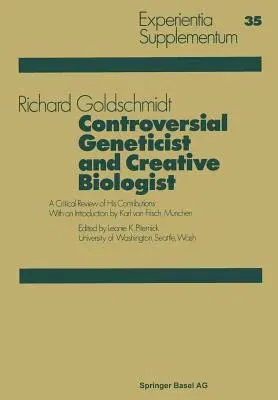R Goldschmidt
(Author)Controversial Geneticist and Creative Biologist: A Critical Review of His Contributions with an Introduction by Karl Von Frisch (Softcover Reprint ofPaperback - Softcover Reprint of the Original 1st 1980, 23 August 2014

Qty
1
Turbo
Ships in 2 - 3 days
In Stock
Free Delivery
Cash on Delivery
15 Days
Free Returns
Secure Checkout
Part of Series
Experientia Supplementum
Print Length
154 pages
Language
English
Publisher
Birkhauser
Date Published
23 Aug 2014
ISBN-10
3034858574
ISBN-13
9783034858571
Description
Product Details
Author:
Book Edition:
Softcover Reprint of the Original 1st 1980
Book Format:
Paperback
Country of Origin:
NL
Date Published:
23 August 2014
Dimensions:
24.41 x
16.99 x
0.84 cm
ISBN-10:
3034858574
ISBN-13:
9783034858571
Language:
English
Location:
Basel
Pages:
154
Publisher:
Series:
Weight:
258.55 gm

